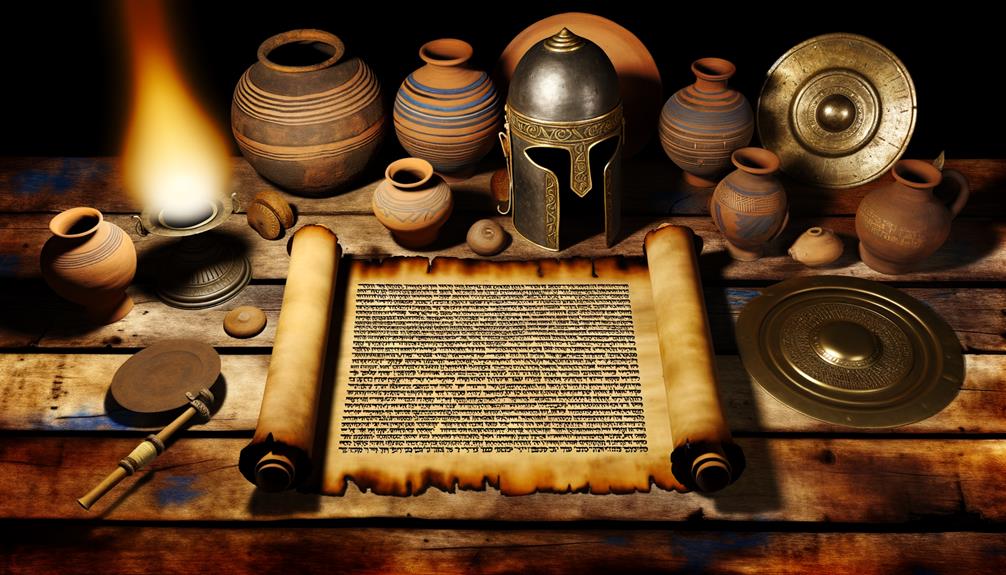Marcellus Meaning in the Bible: Name and Legacy
While the name Marcellus does not appear explicitly in the Bible, it bears deep cultural and theological significance. Derived from the Latin ‘Marcellus,’ meaning ‘little warrior,’ and rooted in the god Mars, the name symbolizes strength and resilience.
Early Christians, including saints and martyrs like Pope Marcellus, adopted the name to reflect a fusion of Roman valor and profound faith in Christ. This synthesis embodies the shift from physical combat to spiritual struggle, highlighting the name’s role as an emblem of steadfast faith and integration in the early Church.
Explore further to uncover Marcellus’s rich legacy and spiritual resonance.

Marcellus Meaning in the Bible: Name Origin and Historical Context
| Aspect | Details |
|---|---|
| Name | Marcellus |
| Meaning | Little warrior; young warrior (Latin origin) |
| Biblical Reference | Not directly mentioned in the Bible |
| Historical Context | Roman name, associated with early Christian converts and Roman figures |
| Cultural Significance | Reflects Roman heritage and possibly early Christian influence |
| Spiritual Insight | Symbolizes strength, discipline, and potential for faith transformation |
Etymology of Marcellus

How does the etymology of the name Marcellus illuminate its theological significance within the biblical context?
Derived from the Latin ‘Marcellus,’ a diminutive form of ‘Marcus,’ which itself is rooted in ‘Mars,’ the Roman god of war, the name Marcellus implies strength and martial prowess.
In a biblical context, while not directly referenced, its connotation of strength can be metaphorically linked to spiritual fortitude and resilience. Theologically, names often carry profound implications, suggesting divine purpose or virtue.
Marcellus, consequently, may symbolize the inner strength and moral courage needed to uphold faith and righteousness.
Its etymological roots underscore the importance of steadfastness, a quality revered within the biblical narrative and essential for enduring spiritual trials.
Historical Context

In examining the historical context of the name Marcellus, it is essential to contemplate its usage and significance within early Christian traditions and Roman society.
The name Marcellus, derived from the Latin Marcellus, meaning ‘little warrior,’ held notable prominence in Roman culture, often associated with valor and nobility. Early Christians, existing within the Roman Empire, sometimes adopted the name, reflecting both their cultural integration and the desire to convey strength in faith.
Figures such as Saint Marcellus, a martyred pope in the early 4th century, exemplify the name’s adoption and subsequent sanctification within Christian communities.
Consequently, Marcellus represents a confluence of Roman heritage and emerging Christian identity, encapsulating themes of resilience and spiritual fortitude.
Symbolic Interpretation

The name Marcellus, symbolically interpreted, underscores a synthesis of martial virtue and spiritual resilience, reflecting both its Roman origins and its Christian sanctification.
In its Latin root, ‘Marcellus’ signifies ‘little warrior,’ evoking images of strength and valor. This martial aspect finds a harmonious counterpart in the Christian domain, where the name often symbolizes unwavering faith and fortitude in the face of spiritual battles.
Marcellus embodies the shift from physical combat to spiritual struggle, representing a believer’s journey from worldly conflicts to divine allegiance.
Therefore, the name encapsulates a dual heritage: a tribute to Roman martial prowess and a reflection of the enduring Christian spirit, blending historical significance with theological depth.
Marcellus in Christian Tradition

Reflecting its dual heritage, the name Marcellus occupies a significant place in Christian tradition, where it is often associated with saints and martyrs who exemplified profound faith and unwavering dedication to the teachings of Christ.
Saint Marcellus, a pope of the early 4th century, significantly upheld Christian orthodoxy during a period of severe persecution. His leadership underscored the virtues of resilience and devotion, cementing his legacy within the ecclesiastical community.
Additionally, Saint Marcellus the Centurion, a Roman soldier turned Christian martyr, vividly illustrates the transformative power of faith, as he chose martyrdom over allegiance to pagan rites.
Such figures imbue the name Marcellus with profound spiritual resonance, reflecting its enduring legacy in Christian hagiography.
Broader Biblical Relevance

Examining the broader biblical relevance of the name Marcellus reveals deeper insights into its theological and historical context within scripture and Christian thought.
Although Marcellus is not explicitly mentioned in the Bible, its Roman roots and association with martyrs and saints provide a rich tapestry for exploration.
It symbolizes steadfast faith and the shift from pagan Rome to a Christian empire, illustrating themes of redemption and transformation central to biblical narrative.
The adoption of Roman names like Marcellus by early Christians underscores the universality of the Gospel message.
Consequently, Marcellus serves as an emblem of the integration of diverse cultures within the early Church, reflecting a broader, inclusive vision of God’s kingdom.
Conclusion
Ultimately, the exploration of Marcellus, a name absent from the Biblical canon yet rich in historical and symbolic layers, reveals an intricate tapestry woven by human interpretation and tradition.
It is rather amusing to observe how a name, not even graced by divine ink, can inspire such profound theological discourse.
Perhaps, in the grand scheme of divine nomenclature, Marcellus serves as a reminder of humanity’s penchant for finding profound meaning even in the most unlikely places.






